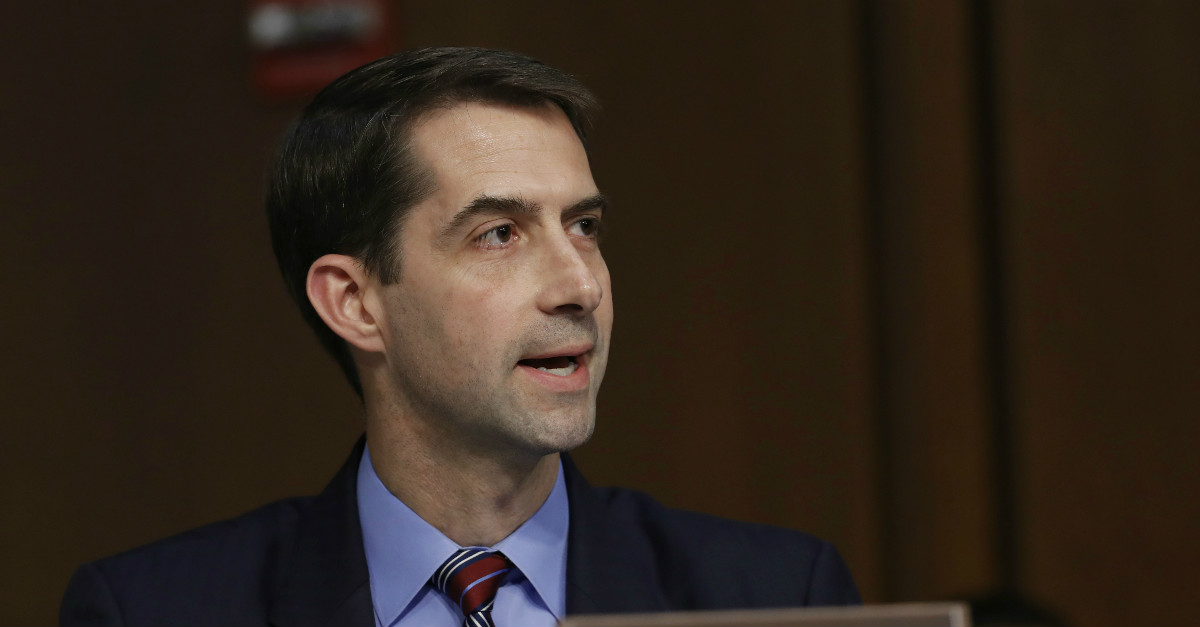Earlier this week, I went to a event starring Senator Tom Cotton at the Center for the National Interest here in Washington. The Arkansas lawmaker was dry but direct, monotone but sharp, taking every hawkish position to its furthest terminus and doing an uncomfortably good job justifying it all. I’ve frequently knocked Cotton in the past because I find him much too extreme (especially on Iran), but he’s the brightest young thing in an increasingly doddering GOP national security wing and anyone who favors a less belligerent foreign policy will have to contend with his arguments.
Videos by Rare
Cotton mostly stuck to the arcane details of missile defense, the subject he was invited to address. But he did briefly swerve onto the Budget Control Act (BCA), the 2011 deficit-reduction legislation that imposed caps on defense spending and threatened the ax of sequestration if they were exceeded. The BCA was pure tea party, a way to beat back the federal budget after the storied supercommittee failed, and when the sequester actually was activated back in 2013, Washington spent years denouncing it. Now Cotton is joining them. The BCA, he declared, was passed during a “different time.” It was time to repeal it.
RELATED: Shame on John McCain for not supporting Donald Trump’s budget director nominee
By “different time,” Cotton presumably meant that the world today is a hotter spot than six years ago, what with Russia licking its chops, ISIS’s heart still beating, and China more aggressive in nearby waterways. He’s right about that, but it’s also a “different time” in that the national debt is higher than it was, $19.9 trillion today compared to $14 trillion in 2011, and with the tea party having mostly doffed its tricornered hats and laid down its muskets, neither party has much impetus to tackle the spending problem.
This drew the admirably concise question from an audience member: “How are you going to pay for all this?” “Good question,” Cotton responded, before claiming that a humongous military budget is a net fiscal good because it keeps channels of commerce safe, which enhances the economy. That’s…a tortured argument. It also proceeds from the assumption that the Pentagon is a purring machine whose dollars go straight to defense when in fact it’s a perpetually unaudited waste-stuffed monstrosity that’s spent money on everything from grocery stores to Star Trek workshops and by its own assessment is slated to rack up $125 billion in administrative waste over the next five years. All this paper pushing and “Telephone” playing doesn’t help readiness; it damages it.
RELATED: No, Tom Cotton, the Iran deal isn’t dead—and we’re better off because of it
Why go on about one senator’s opinion? Because Cotton genuinely fascinates me. He was first elected to Congress on a tea party-ish platform in 2012 and has held the line on everything from Obamacare to farm bills to Harry Reid’s lack of honesty, yet is also the most ideologically hardened national security hawk in the Senate, willing to go places that even John McCain and Lindsey Graham probably wouldn’t. More than any other lawmaker, he stands at the overlap of small-government tea partyism and bomb-bomb-bomb Iran neoconservatism, which, as Jack Hunter likes to point out, tends more towards contradiction than intersection. Now he’s against the Budget Control Act. A sign of the times?
One final thought. Over at Foreign Policy, Thomas Ricks points us to Lieutenant Colonel Dan Ward, a former acquisition officer in the Air Force, who observes that “limited resources tend to drive [innovation].” He continues: “Small teams with short schedules, tight budgets, and deep commitments to simplicity — in other words, teams with a constraint mindset — are not only more creative, but also more effective.” In other words, cheaper government is often better government, and less money for contractors can yield better results, as the BCA has already showed. Something for Cotton to bear in mind.



